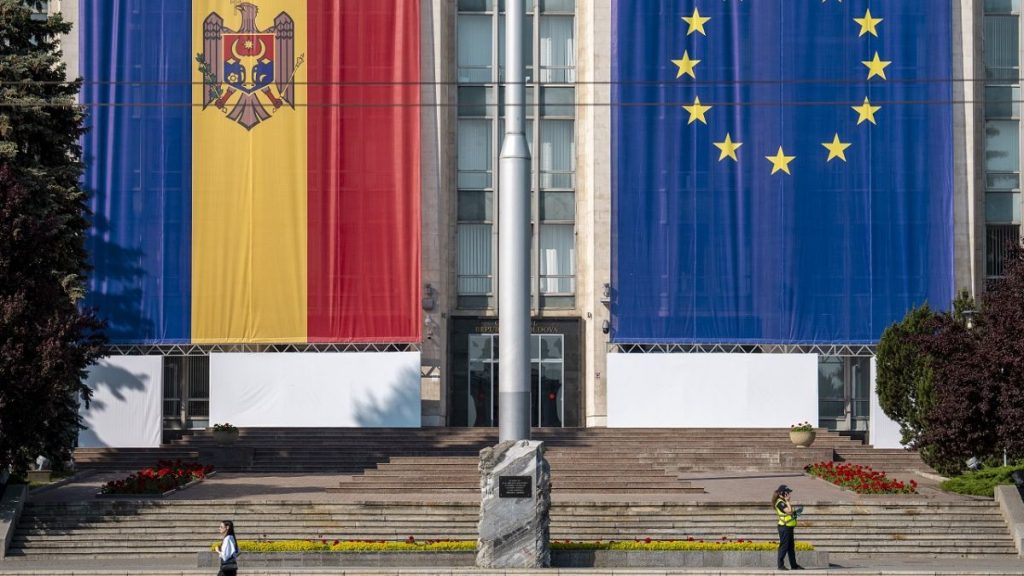Moldovans will be participating in both a presidential election and a constitutional referendum on EU accession this Sunday. The Central Electoral Commission in Chisinau has printed around 5.6 million ballot papers for these important events, which will be distributed to polling stations both within the country and in diaspora communities. In a first for Moldova, the ballot papers will be available in not only Romanian but also in five languages representing ethnic minorities in the country. The outcome of the referendum will determine whether EU accession will be enshrined as a constitutional goal for Moldova, with 12 parties advocating for a “YES” vote and two for a “NO” vote.
A positive outcome in the referendum could potentially lead to increased tensions between the pro-Western leadership of Moldova and the Moscow-leaning breakaway region of Transnistria, where pro-Russian separatists hold sway and around 2,000 Russian soldiers remain stationed. Moldova has accused Moscow of interfering in the referendum by allegedly channeling funds to influence public opinion against the referendum and sway the results. Incumbent President Maia Sandu, who is seeking re-election, has been a strong advocate for Moldova’s EU membership and her election in 2020 was seen as a significant milestone for democracy in the country. Sandu, a former economist at the World Bank, is currently leading in polls for both the presidential race and the “YES” outcome in the EU accession referendum.
The upcoming referendum in Moldova on EU accession has the potential to be a watershed moment for the country and its relationship with the West. The decision to make EU membership a constitutional goal could have far-reaching implications for Moldova’s political landscape, particularly in relations with Russia and the breakaway region of Transnistria. The accusations of Russian interference in the referendum add an additional layer of complexity to the situation, highlighting the geopolitical stakes involved. President Maia Sandu’s support for EU membership and her strong position in both the presidential race and the referendum outcomes underscore the significance of these events for Moldova’s future direction.
The inclusion of five additional languages on the ballot papers for the upcoming Moldovan referendum signifies a recognition of the country’s diverse ethnic makeup and a step towards greater inclusivity in the democratic process. This move may help to ensure that all Moldovan citizens, regardless of their language or ethnic background, are able to participate meaningfully in the decision-making process regarding EU accession. The referendum presents an opportunity for Moldova to reaffirm its commitment to democratic values and its desire for closer ties with the European Union, while also navigating complex geopolitical dynamics with neighboring Russia and the breakaway region of Transnistria.
The outcome of the Moldovan referendum on EU accession will have significant implications not just for the country’s future relationship with the European Union but also for its domestic political landscape and regional security dynamics. A “YES” vote in the referendum could potentially lead to further tensions with Russia and the pro-Russian separatists in Transnistria, while also signaling Moldova’s aspirations for closer integration with the EU. President Maia Sandu’s leadership and advocacy for EU membership have played a central role in shaping the debate surrounding the referendum and highlighting the stakes involved. The upcoming events in Moldova underscore the country’s position at a crucial crossroads in its journey towards closer European integration and democratic consolidation.
The Moldovan referendum on EU accession and the concurrent presidential election represent a pivotal moment for the country and its future trajectory. The decision to enshrine EU membership as a constitutional goal will not only shape Moldova’s external relations and geopolitical orientation but also its internal political dynamics and commitment to democratic principles. The accusations of Russian interference in the referendum highlight the complex regional dynamics at play and the challenges facing Moldova as it seeks to assert its sovereignty and pursue its European aspirations. President Maia Sandu’s strong position and popular support for EU membership underscore the potential for Moldova to continue on a path towards closer integration with the European Union and further democratic consolidation. The outcome of these events on Sunday will have far-reaching implications for Moldova’s future and its place in the broader European landscape.


